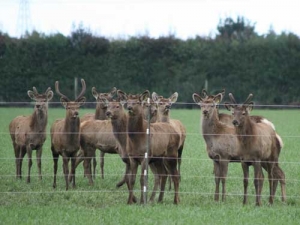Lancorp chief Steven Carden says NZ has a limited capacity to just keep producing more product; only added value will increase the revenue from primary exports.
NZ has to convince people to pay more for our products, but to do that we nust create an appealing value proposition and differentiate our products from others in a competitive global market.
And Landcorp is leading the way, Carden says.
“We have been working with our partners in the market to understand what consumer segments we really want to target and what we offer that they are prepared to pay a premium for,” Carden told Rural News.
“We are looking for partners who are innovative. Ultimately if we can’t create new products and develop new relationships with premium customers we’re not going to find a way to significantly improve the returns on farms.”
Carden says the company is also exploring selling grass-fed and GMO-free beef to parts of Asia, and other new products developed using base products from Landcorp farms. This targets consumers who are health conscious and who want safe food of guaranteed quality from farm gate to plate. Also targeted are people prepared to pay a lot of money for high quality status products, such as handbags made from deer leather.
Wool income for the year was $10.7m – up more than a $1m on last year.
Carden says many farmers have tended to shear their sheep almost as an animal welfare thing, but he believes new and exciting uses are being found for wool – slippers, tennis balls and air filters.
But to get into high value markets changes are needed onfarm to ensure raw product of the highest quality. For example, deer need to be handled carefully in the yards to avoid damaging the animal’s hide.
At present, all the products for the high value consumer goods are coming off Landcorp farms, but Carden says in time they will be on the lookout for other farmer suppliers prepared to comply with the company’s high standards.



















